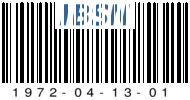Almost all users of web2.0 services will have noticed that it is possible to link different services together, to get data from one service into another, to integrate services. Examples are numberous and I’ll name just a few:
- Twittering my location from Plazes.com
- Importing my contacts into LinkedIN from my Hotmail account
- Getting my tweets into my Dipity timeline
- Having my lifestream info from many services on spock
- Running my familytree application inside facebook
- Sending an update to multiple services at once using hellotxt or ping.fm
- Checking my todo’s from Remember the Milk in my Google Calendar
Nice huh? Well, not really. ![]() If you look at it closely you will discover that most of these so called integrations are actually point to point integrations based on openly published, but very service-specific API’s. Do the math: This means that to connect n services you would need n*(n-1) specific integrations based on n different API’s. Believe you me, this can get pretty complicated very quickly…
If you look at it closely you will discover that most of these so called integrations are actually point to point integrations based on openly published, but very service-specific API’s. Do the math: This means that to connect n services you would need n*(n-1) specific integrations based on n different API’s. Believe you me, this can get pretty complicated very quickly… ![]()
So what’s the real problem then? Dataportability is the problem, or rather, the lack of it. The only reason anyone would want to integrate services is because this creates added value. You can bring different bits of information together to create something new, something better. Actually, you also want reuse of information. I don’t want to add all the e-mail addresses of everyone I know manually to each new service I join, so I import them from my existing contact list. Since Hotmail has a different API for extracting contacts than Gmail or Yahoo mail or any other contacts-service for that matter, if I’m a web2.0 service owner, I’ld have to implement that API for each contacts-service I wish to support. That’s why you only find a few contacts-services on each site, it’s too much ado. (and € $ £ ¥ etc)
The solution would be an open standard for contacts that is supported by all contacts-services so that ‘your-favorite-contacts-service’ could be accessed from ‘your-favorite-web2.0-service’ by just entering some simple parameters like an URL and your Open-ID.
Let’s look at an example that is actually ok: I happen to like the interface of http://iwantsandy.com/ to manage my todo’s (i can e-mail new todo’s in or IM them etc…) but I also manage my calendar at Google, I don’t want to keep visiting two sites every day to see what’s up for that day… The solution is to export my Iwantsandy todolist using the open standard ICS using an internet URL and have Google calendar add the information in that ICS feed to my calendar display. That way I can also see my todo’s from Remember The Milk and any other ics-based calendar feed in my Google Calendar. In fact, since I can also export my Google Calendar using ICS I could also view all my calendars in Mozilla Sunbird or any other calendar application that supports ICS. Nifty ay? ![]()
As you see from the example, this way I do not create a point-to-point integration but an any-to-any integration based on a common data-format. That’s true integration as we all want it. So how does that translate to the Web2.0? Simple: We need an international open standard for each type of information (contacts, joblistings, weblink collections, micro-blogging-items, profile-information, book collections etc) and we need all web2.0 services to abandon their personal API’s and start supporting those open standards. That way the following situation arrives:
- I choose ‘my favorite site for storing and editing information of type x’
- I reuse that information on whatever web2.0 service I choose
- I save lots of time because I don’t have to add information more than once
- I prevent inconsistencies and errors since i always use the same source info
- I achieve web2.0 zen
For now, this will not happen and in most cases we will be creating the spaghetti integrations that are available now. You could say it’s better than nothing, it’s the best we have now… I don’t like to settle for that. I hope things will change and I’m quite willing to discuss these things with anyone…
One thing though… These open standards actually describe what bits of information mean. They describe the meaning of data, in other words: the semantics. A lot of people agreed that the semantic web is actually web3.0 and not web2.0. This means that in my opinion web2.0 will not truely arrive until web3.0 comes into full existence. I guess someone’s got their numbering wrong….. My conclusion however still is the following:
true dataportability NEEDS semantic interoperability… Full Stop…
There are a number of initiatives to try and come up with open standards for web2.0 integration like dataportability.org and Opendd.net. Maybe these or some other will alleviate our problems somewhat. If you know of other initiatives like these, don’t hesitate to comment!
Hope you liked this item!
Cheers!





